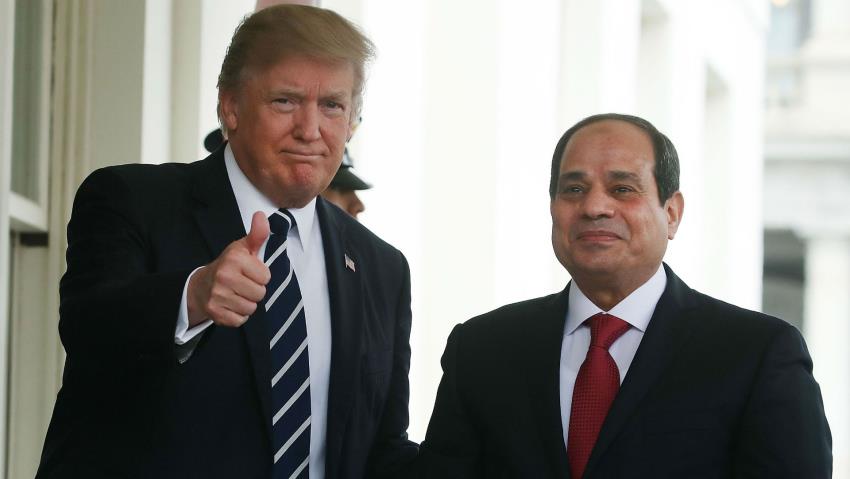Headlines:
- Sisi visits the White House
- Bahrain Monarchy under Threat
- Chemical Attack in Syria
Sisi visits the White House
Egyptian President Abdul Fattah al-Sisi is visiting the White House for the first time since he led the military’s overthrow of his predecessor in 2013. US President Donald Trump said he was “very much behind” Mr Sisi, whose deadly crackdown on dissent was criticised by the Obama administration. Mr Sisi declared his deep appreciation for Mr Trump’s “unique” personality. US officials have said Mr Trump is seeking to “reboot” the countries’ bilateral relationship at the talks. He also wants to “build on the strong connection” established with Mr Sisi when they met in New York in September, during the US election campaign. A senior Trump administration official claimed that human rights concerns would be raised at Monday’s meeting, but that it would be handled in a “private, more discreet way.” HRW’s Washington director, Sarah Margon, criticised this approach. “Inviting Sisi for an official visit to Washington as tens of thousands of Egyptians rot in jail and when torture is again the order of the day is a strange way to build a stable strategic relationship,” she said. The two presidents are also expected to discuss a range of regional issues, including efforts to revive the Israeli-Palestinian peace process and the battle against so-called Islamic State.
Bahrain Monarchy under Threat
Bahrain’s king on Monday approved a constitutional amendment granting military courts the right to try civilians. Under the new amendment, the courts have the power to try any civilian accused of threatening the security of the state. However, in reality the measures are there to curb Iranian influence. These new laws allow the leadership of Bahrain who are Sunni to control a predominantly Shia nation. Historically whenever unrest has taken place Saudi Arabia has jumped to the aid of the regime for its own regional interests, namely to counteract Iranian influence at its doorstep. Authorities have justified the move as necessary to fight what they say are Iran-linked anti-government cells that have targeted the state. The move coincided with a decision by the kingdom’s top court to reduce the jail sentence of the leader of main Shia opposition faction, Sheikh Ali Salman, who had been convicted of inciting hatred and insulting the state. The kingdom accuses the opposition of working with predominantly Shia Iran to incite unrest in the kingdom. However Iran tends to play on the emotions of the people which are already anti-regime, these new laws will just add more fuel to the fire.
Chemical Attack in Syria
Just a day after the US representative to the United Nations said that the US is no longer prioritising the removal of Syrian President Bashar al-Assad. For Bashar al-Assad this was the green light, if he ever needed one to conduct his latest chemical weapons attack. The chemical weapons attack took place on the town of Khan Sheikhun in Idlib, northwestern Syria. Over 100 people are reported dead and reports form the scene speak of only civilian deaths. The al-Assad regimes use of chemical weapons has now occurred so many times it has become a regular feature of the battle for Syria. As has also become normal the selective outrage demonstrated by the Western Media and Government’s only confirms that some lives matter more to them than others. But the surrounding Muslim nations hold the largest share of culpability for failing to protect the Ummah despite having the capability to do so.

